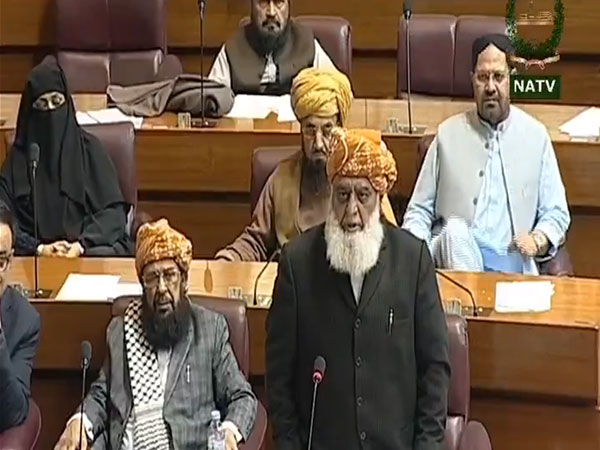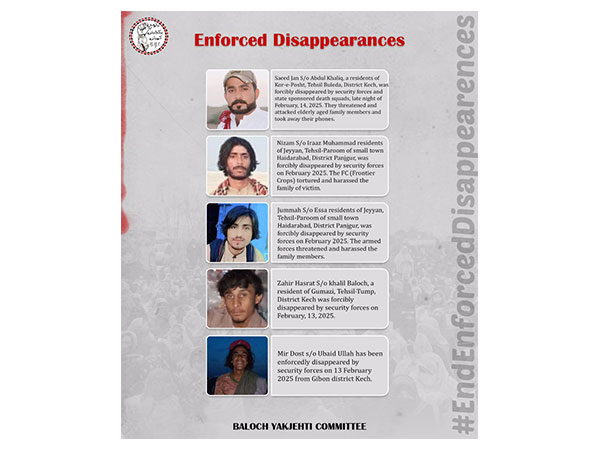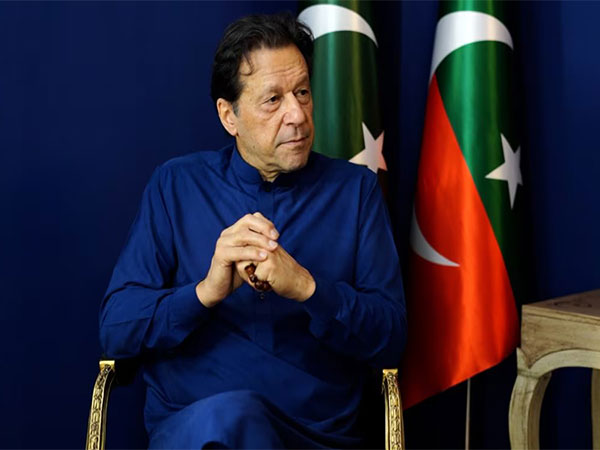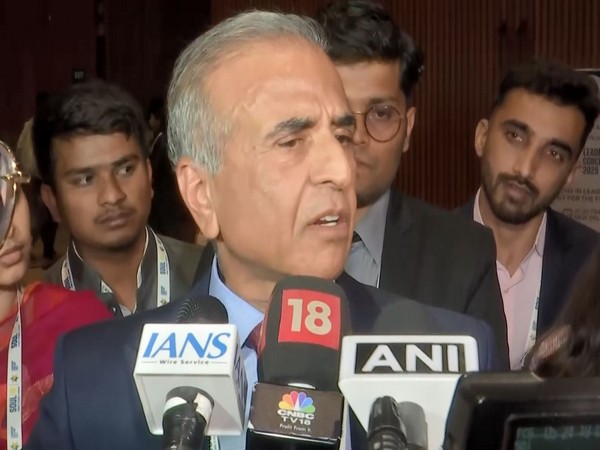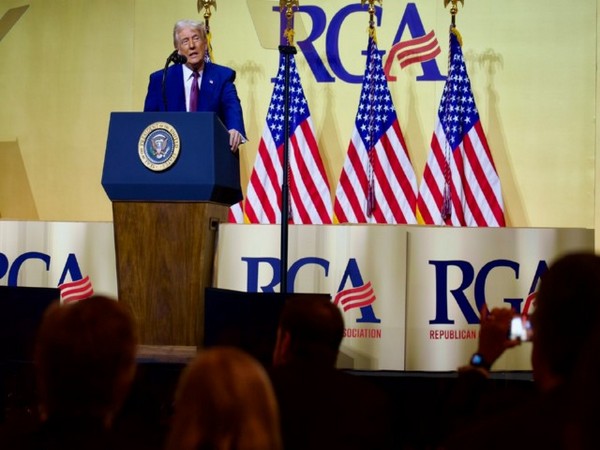
Washington DC [US], November 29 (ANI): Expressing surprise over the Biden administration “not paying more attention to Bangladesh“, former USCIRF Commissioner Johnnie Moore has expressed concern over the situation concerning minorities and said, “This is a moment of existential threat not only for the minorities of Bangladesh but for the entire country”.
In an interview with ANI, Moore said that United States President-elect Donald Trump is coming with an incredible team of advocates for American values who view India as indispensable allies.
“I am astonished that the current administration hasn’t been paying more attention to Bangladesh. But the fact of the matter is, that one of the reasons why there’s going to be a change of administration in the United States in just a few weeks is because the foreign policy of this administration has not paid attention to a lot of issues. That’s why there are more than 50 conflicts all around the world, more since World War II,” he said.
“But I can also tell you this, Donald Trump is coming to town in Washington DC and he’s coming to town with an incredible team of advocates for American values, that view countries like India as indispensable allies in shaping the future of the world,” he added.
Moore, a former US Commissioner on International Religious Freedom (USCIRF), was asked about the US stance amid violence against minorities in Bangladesh.
Asked what Donald Trump will do differently than the Biden administration, he said there’s no challenge in the world that cannot be solved when the genius of Indian culture and American culture come together.
“This isn’t just going to be about Indian-American constituents that have voted and have policy priorities. This is an administration that’s giving the Indian-American community a seat at the table. There’s no challenge in the world that cannot be solved, there’s no opportunity which cannot be realized – when the genius of Indian culture and American culture come together,” Moore said.
The former US official said there will be an alliance between US and India that the world has not yet comprehended.
“I can assure you that religious freedom was the top human rights priority in the first Trump administration in the United States. It was the driving force in many ways of our foreign policy. You’re going to see that again. You’re also going to see an alliance between the United States and India like the world has not yet comprehended. This will be the fact. Our second lady comes from an Indian American background,” he said.
“This is a historic moment in terms of the relationship between our two cultures, not just our two countries. Vivek Ramaswamy, who’s an indispensable advisor to President-Elect Trump when it comes to the historic re-engineering of the American government to make this far more efficient, far more effective and far more prosperous for future generations, comes from the Indian American community,” he added.
Asked about West being “silent” over violence against religious minorities in Bangladesh, Moore admitted that a lot of times when the Hindu community is persecuted, fewer people speak up about it.
“Human rights organizations and religious freedom organizations sought to raise their voices every second right. I think that a lot of times the Hindu community, when they are persecuted around the world, unfortunately, fewer people speak up about it. I’m committing to doing the exact opposite… I’m calling for the world’s human rights and religious freedom organizations to do the same,” he said.
“When Muhammad Yunus came in as the interim leader of the country, he made promises related to democracy, the rule of law, and all of these values that are cherished by the West and our international institutions… This is a moment of existential threat not only for the minorities of Bangladesh but for the entire country. It is a call to advocate for human rights and religious freedom to speak up,” he added.
Moore criticised the arrest of priest Chinmoy Krishna Das by Bangladesh Police and said perception among minorities in t he country is “if they’ll go after him, they’ll go after any of us”.
Moore said the global Christian community stands with the Hindu community in Bangladesh.
India on Tuesday expressed its concern over attacks on Hindus and other minorities in Bangladesh and the arrest and denial of bail to Chinmoy Krishna Das, spokesperson of the Bangladesh Sammilit Sanatan Jagran Jote.
Ministry of External Affairs said in a statement that this incident follows the multiple attacks on Hindus and other minorities by extremist elements in Bangladesh and that there are several documented cases of arson and looting of minorities’ homes and business establishments, as well as theft and vandalism and desecration of deities and temples.
The statement said it is unfortunate that while the perpetrators of these incidents remain at large, charges should be pressed against a religious leader presenting legitimate demands through peaceful gatherings.
The Indian government also noted with concern the attacks on minorities protesting peacefully against the arrest of Das and urge Bangladesh authorities to ensure the safety and security of Hindus and all minorities, including their right of freedom of peaceful assembly and expression. (ANI)
“Muhammad Yunus is failing, there isn’t a minority in Bangladesh that does not feel under threat”: Former USCIRF Commissioner Johnnie Moore
Washington DC [US], November 29 (ANI): Johnnie Moore, former Commissioner of the United States Commission on International Religious Freedom (USCIRF), has slammed the Bangladesh interim government over the situation of Hindus and other minorities in Bangladesh, saying “there isn’t a minority in the country that doesn’t feel under threat right now” and that “Muhammad Yunus is failing.”
In an interview with ANI, Moore said it is the government’s first responsibility to protect those under threat. He also said that this is a moment of “existential threat not only for the minorities of Bangladesh but for the entire country”.
Moore criticised the arrest of priest Chinmoy Krishna Das by Bangladesh Police and said perception among minorities is “if they’ll go after him, they’ll go after any of us”.
The former USCIRF Commissioner said the global Christian community stands with the Hindu community in Bangladesh.
“Bangladesh isn’t just a Muslim country. It’s a Muslim-majority country that has many, many minorities. There isn’t a minority in the country that doesn’t feel under threat right now. That’s been globally evident in recent days as this high-profile arrest has taken place of not just a leader of the Hindu Bangladeshi community, but really a very serious religious figure. I think the perception is if they’ll go after him, they’ll go after any of us. I want to be crystal clear, that the global Christian community stands with the Hindu community in Bangladesh. It is the first responsibility of a government to protect those under threat. The religious minorities of Bangladesh are really feeling it now and they deserve our support,” he said.
“We’re not sure who’s really doing this, but let me just say, the way I see it, Muhammad Yunus is failing. That’s what’s happening in Bangladesh now. As, the leader of the country, as the interim leader of the country, there are no aspirations for the Bangladeshi people. If you can’t manage a very, very simple component of civil society, which is you have to protect people, people have to be safe. If the rule of law becomes so inefficient that instead of getting due process, a lawyer is killed. This is unbelievable, I was astonished by the response of Mr Yunus in the Bangladeshi government. They are saying this is exaggerated. They’re saying that this isn’t as big a deal as it seems,” he added.
Moore said the visuals and the reports that are coming out of Bangladesh show that how a Hindu priest was first arrested then he was denied bail by the local court.
“Then the lawyer defending the priest was killed amid protests outside the court where the lawyer was hacked to death by protesters, dragging him out of his chamber. It’s become a major rallying point in the country,” Moore said.
“As the leader of the country, as the interim leader of the country, there are no aspirations for the Bangladeshi people if you can’t manage a very, very simple component of civil society, which is you have to protect people. People have to be safe. And you certainly, you certainly cannot have a vibrant democratic country…if the rule of laws becomes so inefficient that instead of getting due process, a lawyer is killed,” he added.
Moore also expressed concern over Bangladesh’s Attorney General’s push to remove the word ‘Secular’ from the constitution amid growing attacks on religious minorities.
“Bangladesh should ask for advice from India and the United States. These are incredibly pluralistic countries that despite a lot of religious competition people have found a way to manage it. Not perfectly. None of our countries are perfect. We make lots and lots of mistakes. But Bangladesh should ask for some help. But secondly, you can’t make these promises and not keep them. The second thing they need to do is take what’s happening seriously,” he said.
“The statement that came officially from Mohammed Yunus and the government of Bangladesh was in response to it – they diminished it. That’s not what a leader does. A leader takes issues like this seriously… I’m afraid that this mistake could have other consequential effects. The good news is it’s not too late to fix it… I’m sorry to say this, but we’re finding a lot around the world, a lot of countries that are using the term democracy but aren’t actually instituting its values,” he added.
Muhammad Yunus took over as interim leader of Bangladesh in August this year.
The International Society for Krishna Consciousness (ISKCON) also expressed solidarity with Chinmoy Krishna Das, who was arrested on charges of sedition for allegedly raising a flag on a stand displaying Bangladesh’s national flag.
Moore said the way the crisis relating to minorities is being handled by Bangladesh government poses risk of denying the Bangladeshi people all the benefits that can come from being in a close relationship with India which is “an economic, technological and political powerhouse”. (ANI)
